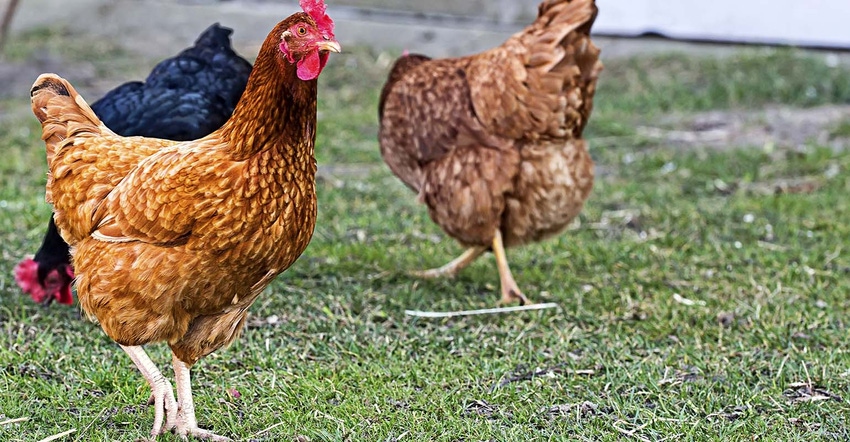February 8, 2017

Update:
The effective date of this rule has been delayed by 60 days under an executive order signed by President Donald Trump. The rule was set to take effect March 20, 2017. See the notice in the Federal Register.
Final rule announced
USDA's Agricultural Marketing Service announced in January 2017 a final rule that clarified production requirements for organic livestock and poultry. The final rule ensured that all organic animals lived in pasture-based systems utilizing production practices that supported their well-being and natural behavior.
In addition, the final rule supports the core goal of the Organic Foods Production Act (OFPA), which instructs USDA to develop regulations – including detailed standards for organic livestock and poultry production – to ensure that organic products meet a consistent standard.
Based on multiple recommendations from the National Organic Standards Board and a robust record of public comments from a range of stakeholders, these amendments ensure consistency and consumer transparency by setting clear, enforceable standards for organic animals. Developed in close consultation with other federal agencies, the rule also clarifies options available to organic producers to help them achieve critical food safety and biosecurity goals.
Major provisions of the rule include:
-Clarifying how producers and handlers must treat livestock and poultry to ensure their health and well-being throughout life, including transport and slaughter.
-Specifying which physical alterations are allowed and prohibited in organic livestock and poultry production.
-Establishing minimum indoor and outdoor space requirements for poultry.
The final rule published in the Jan. 19, 2017, Federal Register, and can be viewed at http://www.regulations.gov or on the AMS website.
Sen. Debbie Stabenow, ranking member of the U.S. Senate Ag Committee, pledged to continue working with USDA to address her concerns with the rule.
“I am disappointed that USDA’s rule on organic livestock practices did not address many of my concerns about animal health, consumer organic prices and access, or the impact on organic producers," Stabenow said. "While I support high standards for animal welfare in the organic industry, I believe USDA missed an opportunity to do this in a way that did not risk unintended consequences."
Likewise, Sen. Pat Roberts, chairman of the Senate Ag Committee, pledged to work to change the rules.
“I, and a bipartisan group of members of Congress, have expressed concerns multiple times over this detrimental rule," Roberts said. "We, and the farmers and ranchers we represent, were flat out ignored.
“This rule has serious potential to force organic farmers and ranchers out of business and is widely opposed by those very folks who are affected the most by this rule. Prices for consumers could rise, and animal health could be put at risk, which may decrease food safety. I will work with USDA under the new administration to see what can be done to ease this overregulation on our hard-working farmers and ranchers.”
USDA strengthened programs that support organic operations over the past eight years by establishing a number of resources to help organics producers access USDA programs and tools that can help them grow domestically and abroad. The site http://www.usda.gov/organic creates a one-stop-shop for the organic sector to get the assistance they need. With support from USDA, the total retail market for organic products is now valued at more than $43 billion in the United States alone. The National Organic Program, part of the Agricultural Marketing Service, is responsible for ensuring the integrity of organic agricultural products in the United States and throughout the world. More information is available at http://www.ams.usda.gov/nop.
Source: USDA AMS
You May Also Like




